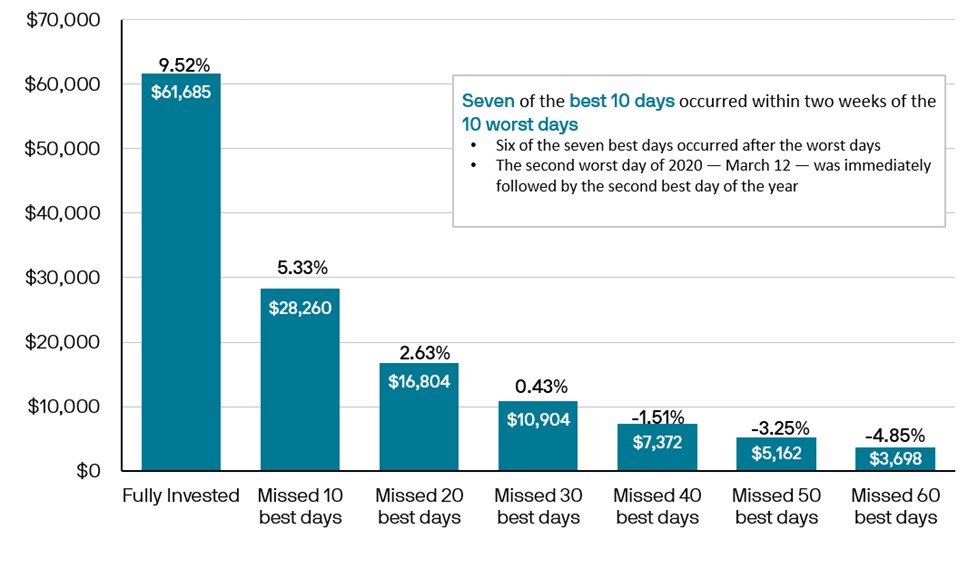Control and Influence
As the father to four young men, one of my goals is to successfully make the transition from a relationship of control to one of influence. Control is easy, right? Do this, don’t do that. For example, don’t take off your clothes and turn the garden hose on the sweet little Japanese family that your mom tutors. In my defense, I didn’t think I would have to provide such counsel to my 4-year-old, but I guess I should have. First-time parent rookie mistake, I guess. Or please do take off your clothes before using the restroom. Thought I covered that in the first several years or so, but I guess not. (Sophomore slump with #2 – child #2, that is.) And one of my personal favorites of #2, please don’t tell the hairy man at the pool that you thought cavemen were extinct. On second thought, maybe control isn’t that easy. But in the world of personal finance, believe it or not, control is a bit more obtainable.
Today and every day, and in every facet of our lives, we should be focusing more on things we can control and worrying less about the things we can’t. In the world of finance, for example, none of us has any control over the markets, taxes, interest rates, inflation or the headlines of tomorrow’s news outlets. Yet, such things can affect our outlook on our financial situation and lead us down the path of worry and anxiety. And left unchecked, that worry can lead to paralyzing fear, or possibly worse, emotionally charged decisions. Both of which can be detrimental to our financial wellbeing. So, what should we focus on? There are essentially four primary factors within your control when it comes to your finances. I’ll present these in a “self-fulfilling prophesy” kind of way.
I can control how much I spend. Unless you have an unlimited supply of resources, your spending will need to be controlled. Similar to exercise, it can be difficult and painful, but it can be done. And you’ll be better off because of it. Let’s define spending as how much you’re choosing to live on every day and how much you’re choosing to spend to enjoy your life today and in the years to come.
I can control how much I save. I will save X amount now, so that I’ll have Y amount to spend later. If you’re still in the wealth accumulation stage, you or your spouse likely have access to a 401(k) retirement savings plan. And in some cases, your employer may incentivize you to save for retirement by offering an employer “match.” That is, your employer will match a certain percentage of your contribution (to your plan) up to a certain percentage of your salary. In such a case, your decision to save not only provides for your contribution to be spent later, but your employer matching contribution as well. The industry term there is “free money”. And yet another contributor to your retirement account will be the law of compounding returns – what Einstein called the 8th wonder of the world – whereby you’re earning returns on both your original investment and on returns you received previously. Picture a snowball rolling down a mountain, picking up more snow as it goes. Before long, your snowball is a heaping mound of cash. You catch my drift. See what I did there? (Bonus Track: Look up the Rule of 72 and thank me later.)
I control how much risk I take. Indeed, you do. Not every person that invests in the stock market is 100% invested in stocks. In fact, an August of 2024 survey from Empower Retirement has the average stock allocation for those in their 20s, 30s and 40s to be approximately 50% of their total portfolio. Can you guess which age group from that same survey is credited with holding the 2nd highest percentage of cash at a whopping 30.8%? Wrong – those in their 20s. Bested only by retirees 70 and older.1 A post for another day, maybe, but such a conservative and seemingly “risk-averse” strategy may be anything but.
I control the timing of my financial decisions. Yes, you do. Like when you pull the trigger on a large purchase, or decide to retire, change jobs or (these days) even take on a second job. Also within your control is the timing of when to save more, spend less, invest more aggressively. They say, Timing is everything. I don’t know about everything, but it’s a fairly big lever to pull with respect to your financial security.
As I’m sure you’ve recognized by now, these four areas of control are inextricably linked. You’d be hard pressed to change one without affecting the other. Again, assuming resources are finite, if you choose to spend more, then you’ve also chosen to save less. If you’re spending less, you very well could be saving more. And saving more (or saving less) will certainly subject your goals to more (or less) risk, right? If, for example, you’re spending a great deal of money now on Alabama season tickets, you’ll presumably have less money saved to put your daughter through Auburn. (We’ll do anything for our kids, won’t we?) And anytime you’ve chosen to make any changes in savings, spending or risk taken – or not – you’ve made a decision in timing.
So where does influence come in? Great question. Influence certainly has its role in your finances. As we’ve stated, none of us will likely ever move the stock market, nor will we affect the tax structure or control interest rates.
Each of those, however, will influence what we can control.
Let’s say inflation rises – a lot. And you find yourself barely having the money for the things you need – much less the things you want. Now what? Well, that means you’ll need to prioritize and spend less on the things you could do without and save more for the things you really want. Or possibly change the amount of risk you’re taking to increase the chance you’ll make more money for the things you want. Maybe you’ll choose to work longer? Or maybe you’ll have to find a new job or possibly a second one? Or it could easily be some combination of these. It’s important that we understand when it’s time to adjust the factors that are within our control – our spending, our saving, the risk we take, and the timing of our decisions. Many factors can and will influence our decision-making process. Which begs the question,
Do you know what matters most to you in your financial life?
A quick answer can be found in your check register. Or for those of you under the age of 50, your online bank statements. Your answer to that question will guide you as you create a plan to help you live your one best financial life. And through that financial plan, you’ll be able to manipulate those areas within your control in anticipation of those influencing forces outside of it.
As for my boys, #1 is married and finishing up med school, #2 is a junior at Auburn and literally creating his own path toward a career of film/sharks/ecotourism, #3 is a senior in high school and likely to change the world through music, and #4 is a sophomore in high school and winning the hearts of college basketball and soccer coaches alike. All accomplished young men in their own rights, but all benefiting from the influence of those who’ve gone before them. I’m honored to be a part of that counsel. Whether serving as a father or a financial advisor, having influence for the betterment of one’s life is a legacy I’m proud to be a part of.
Article by: Billy McCarthy, Investment Advisor
To discuss this article further or to learn more about CapSouth Wealth Management, visit our website at www.capsouthwm.com or www.capsouthwm.com/what-we-do/ Call 800.929.1001 to schedule an appointment to speak with an advisor.
1 What is the average allocation by age? (Empower Retirement, The Currency, 08.07.24)
Investment advisory services are offered through CapSouth Partners, Inc, dba CapSouth Wealth Management, an independent registered Investment Advisory firm. Information provided by sources deemed to be reliable. CapSouth does not guarantee the accuracy or completeness of the information. CapSouth does not offer tax, accounting, or legal advice. Consult your tax or legal advisors for all issues that may have tax or legal consequences. This information has been prepared solely for informational purposes, is general in nature and is not intended as specific advice. Any performance data quoted represents past performance; past performance is no guarantee of future results.




